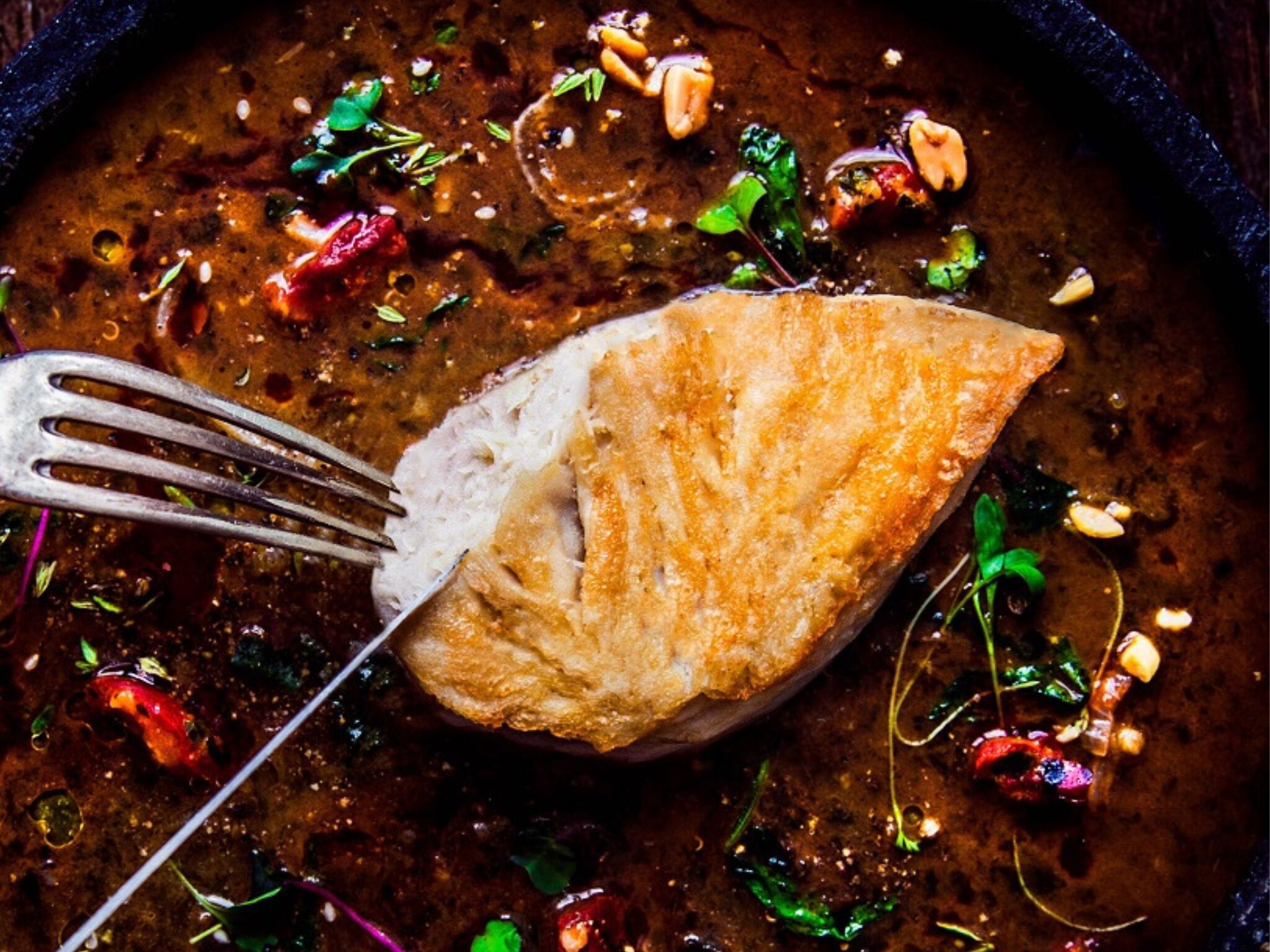While French Ministers Fight Alternative Protein, Health & Climate Experts Call for Dietary Guidelines to Reduce Meat
5 Mins Read
As France restricts plant-based meat labels, pushes to ban cultivated meat, and encourages factory farming, nutrition experts and climate activists are urging the national dietary guidelines to recommend a reduction in meat consumption.
In November, a large European survey – which included 750 French citizens – revealed that 57% of people in France have reduced their meat consumption. For 38%, health was the biggest reason, while 29% picked the environment as the greatest motivation.
However, a new 3,000-person poll has found that French consumers are eating more meat (over 700g per week) than what’s recommended by the national dietary guidelines (600g weekly). Benoît Granier, food manager at the Climate Action Network (RAC) and co-author of the study, illustrated the conundrum: “There is a significant portion of the French who feel they eat less meat, or who want to eat less. But meat consumption itself is not decreasing.”
His organisation collaborated with the French Nutrition Society (SFN), which includes a host of public and private sector nutrition experts, for the new report, which is calling on the national guidelines to suggest cutting meat consumption by at least 25% each week – a total of 450g – in the upcoming update. “Today, we can no longer just think in terms of human health alone,” said public health expert and SFN member Nicole Darmon. “We’re also thinking in terms of the planet’s health.”
Dietary guidelines should consider meat’s climate and health effects

Currently, the French National Nutrition and Health Program (PNNS) recommends eating a maximum of 500g of red meat and 150g of processed meat – taking into account both categories’ links to cancer, cardiovascular disease and type 2 diabetes – while favouring poultry consumption, for which no limit has been set.
But the researchers argue that these guidelines don’t account for the growing number of studies shedding light on the animal agriculture industry’s environmental impact. Research suggests that veganism can reduce greenhouse gas emissions, land use and water pollution by 75% compared to diets rich in meat, which account for 60% of the food system’s emissions.
One study revealed that just replacing 50% of our meat and dairy consumption with plant-based analogues can bring down agricultural emissions by 31%, halt deforestation and reduce biodiversity loss. And this latest French survey revealed that diets contribute to 22% of the country’s emissions.
“With half as much meat, if we eat more fruits and vegetables, legumes, fruits and whole grains, we can check all the boxes in terms of nutrition,” said Granier. The RAC and SFN’s recommended meat intake would mean capping consumption to four meat-based meals a week, which can be done without any compromises by making some adjustments.
A health research review has previously revealed that swapping 50g of processed meat with 28-50g of nuts daily can lower the risk of death by 21% from any cause, while the risk of cardiovascular disease – the second-most common cause of death in France – can be decreased by 25% if 50g of processed meat is replaced by nuts or legumes per day.
Serge Hercberg, former president of the PNNS, welcomed the call from the SFN and RAC. “It is really essential to take into consideration this environmental dimension,” he said. “Today, many countries say it needs to be done, but very few have done it.” One of those is Denmark, which became the world’s first country to prioritise a plant-based transition in its national action plan last October. That same month, South Korea also prioritised vegan food production and alternative protein consumption in its national strategy.
France wages war on alternative protein amid push for factory farming

The big problem, Granier outlined, is that “everything around us encourages us to eat a lot of meat”. He explained: “Even the current recommendations are not widely followed. Everything is mobilised for us to consume things that are contrary to the PNNS.”
It’s a nod to the French government’s policies, which heavily favour the traditional meat industry. In September, the country announced its intention to ban 21 terms – including ‘steak’, ‘beef’, ‘ham’ and ‘grilled’ – from plant-based meat product labels, which attracted backlash from vegetarian groups. “This new draft decree reflects our desire to put an end to misleading claims… by using names relating to meat products for foodstuffs that do not contain them,” said agriculture minister Marc Fesneau. “It’s an issue of transparency and loyalty which meets a legitimate expectation of consumers and producers.”
Two weeks later, the nation U-turned on its factory farming stance, with Fesneau calling on farmers to produce more and cheaper meat to “take back the market from imports”. But, as the SFN and RAC study points out, while over 30% of meat eaten in France was imported (and 50% of chicken), a reduction in meat consumption wouldn’t hinder farmers. “The challenge is to prioritise meats that are French, from more sustainable farming, with public policies to support breeders in this transition,” he explained.
Food in France has seen an 11% inflation, forcing many to seek the cheaper meat Fesneau is promoting. “30% of French people now have the means to pay more for quality,” Pascale Hébel, a consumption analyst for data consultants C-Ways, told the Guardian. (In contrast, 50% could afford higher-quality meat in 2017.)
But the recommendations of the study – limiting red, processed and poultry meat consumption to a maximum of 450g per week – would actually make for a 10% cheaper diet on average, with the authors imploring that social and economic inequalities be taken into consideration in the national nutritional recommendations.
France is now also hoping to ban cultivated meat, as part of a collective effort including a dozen other states pushing back against these novel proteins. The proposed bill would forbid producing, processing or marketing cultured meat in the country “in the interests of human health, animal health and the environment”.
However, Hercberg argued that consumers should make their own minds up about meat consumption. France’s Climate and Resilience Act mentions eco labelling on product packaging as one of its key goals, accompanying the Nutri-Score labels already adopted by the country. A 2020 analysis of three global YouGov polls totalling 10,540 participants found that 80% of French citizens find carbon labelling a good idea.
While France is set to introduce its eco-labelling scheme this year, will the government take into account the impact of meat for its dietary guidelines?




